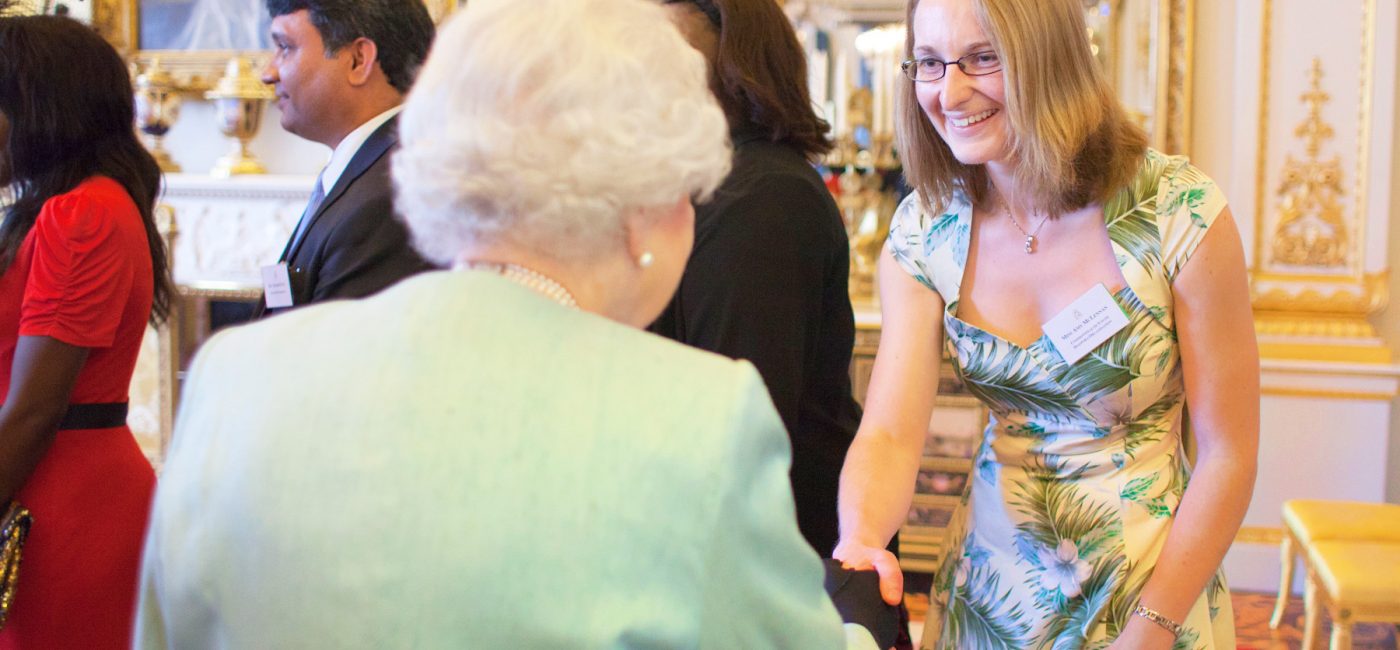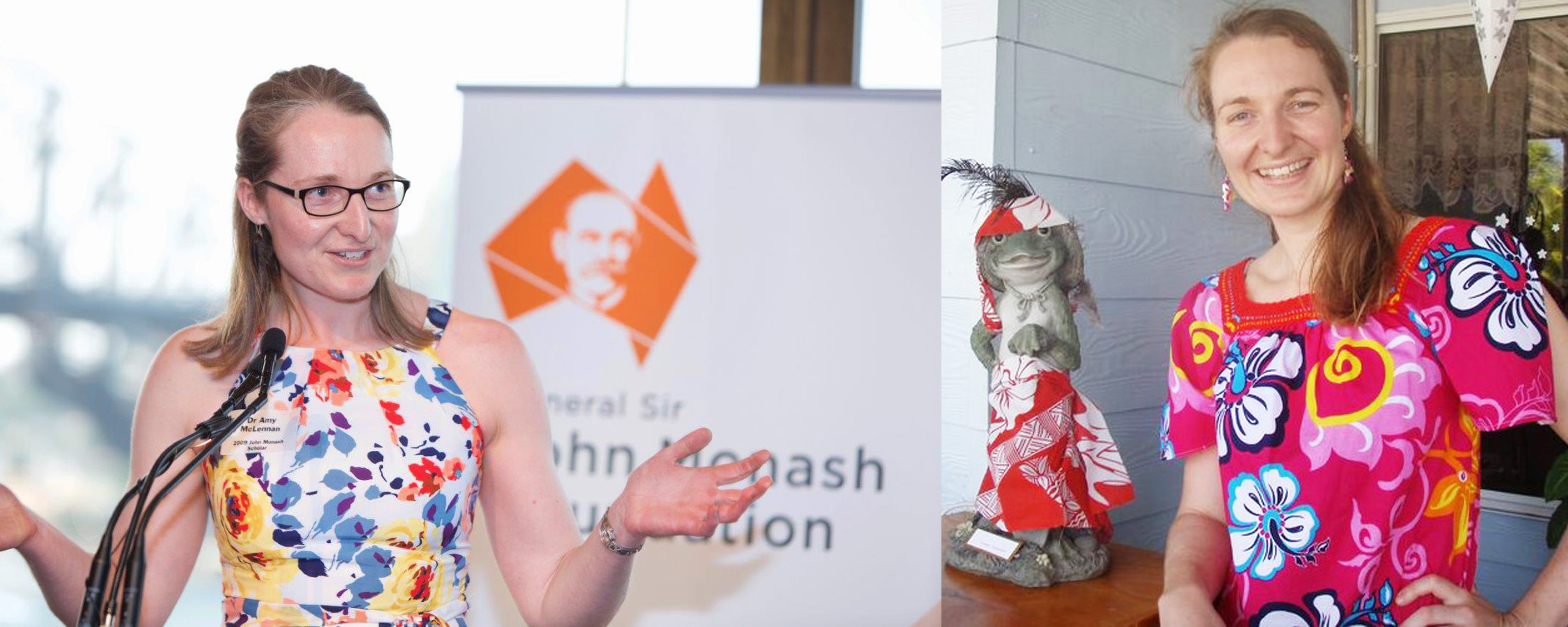
"I’m glad the NYSF gave me the confidence to explore beyond the status quo, and that it connected me with so many supportive and like-minded explorers!”
Research Fellow at the Australian National University & Research Associate at the University of Oxford
Dr Amy McLennan is a collaborative anthropologist with a strong sense of local and global community and a commitment to improving human wellbeing. Amy has academic training in the biomedical sciences, social sciences and French language, and professional experience in the academic, policy and private sectors.
Amy talks about her fascinating career journey to date …
“When I attended the NYSF in 2000 I didn’t know what I wanted to do next. I felt enormous pressure to commit to a path for the future, to an identity for life, and to a career which reflected my grades. All this in the context of a world telling me that the workforce was changing rapidly, and that I would have multiple careers in my lifetime. In hindsight, there’s no way I could have predicted my path: neither the master’s degree I later studied nor my last two workplaces were even imagined at that time.
At the NYSF, we were offered different advice. Try things out before judging them. Keep our options open. See what works for us (and learn from what doesn’t!). Work hard to keep up momentum. Ask questions and seek advice and support from the incredible people around us. And don’t be afraid to think outside the norm and beyond the cutting edge!
I took this advice seriously. After a year’s exchange in France, I returned to study medical sciences at Flinders University. I majored in nutrition, neuroscience, anatomy and physiology, having been inspired by teachers like Quentin Fogg, Ian Gibbins and Annette Cotter. I worked hard and stayed open to possibilities and people. I taught nurses and worked in a chemistry R&D lab. I completed my Honours research in anatomy at the University of Adelaide, with Maciej Henneberg and Rachel Norris, and I thought more study wasn’t for me. So I looked for a job.
I worked in the SA Department of Health and in international development consulting, and learned a lot from colleagues and supervisors in both places. I saw that science often fails communities, and these experiences raised many new questions for me. Maciej advised me that I wouldn’t find answers to my questions using the scientific method. He suggested I contact a colleague of his, Stanley Ulijaszek.
I did, and I began to learn about anthropology. Stanley sent me some of his latest papers and plans for future research directions, and it was fascinating. After several years of collaboratively refining applications and patiently incorporating feedback, I was shocked to receive a Clarendon Award and St Cross College bursary to study for an MPhil in Medical Anthropology at the University of Oxford, with Stanley as my supervisor. I was almost prepared for the amount of hard work the degree contained, but I was totally unprepared for just how much it would dismantle everything I thought I knew about the world. The social sciences and humanities still challenge my assumptions and turn my world upside-down most days!
I’ve been exploring incredible new horizons ever since.
I was privileged to be able to stay on in Oxford for my DPhil, thanks to the support of my supervisor and funding from the General Sir John Monash Foundation in Australia and St Edmund Hall in Oxford. I studied and taught medical anthropology, the human sciences, and rowing in Oxford – I developed a passion for all three. I also did some consulting and facilitation work with companies in the UK and France: I designed and delivered programs for young offenders and young achievers, I represented Australia in developing the youth response to the draft SDGs, I planned and managed a lot of academic conferences, and co-facilitated a thinktank to design a new EU-Pacific research framework on NCDs.

The period of post-thesis consolidation wasn’t easy. I’ve never had my hopes up for so many exciting opportunities, or experienced so many rejections. I’ve also never experienced such strong support from a few important friends and mentors – and I remain very grateful for this. A short internship opportunity arose at the Australian Government Department of the Prime Minister and Cabinet, and this turned into over two years of service in high-performing team that delivered advice on some of the nation’s most complex policy challenges. I worked with the Project Office on policies including gender violence, innovation, cyber security, health, cities and migration. I was surprised how consistently ‘culture’ came up as a ‘problem’ in all of these.
At this time, I met some people who were making great headway in thinking about culture and society in policy design. I moved to work with ThinkPlace Global to learn more about their award-winning approaches to complex system design. Design is action-oriented, and I learned some great new ways to accelerate social research into ground-breaking action.
In late 2017, a fellow John Monash Scholar introduced me to Genevieve Bell, an anthropologist who had just returned to Australia to build a new applied science at the 3A Institute in the ANU’s College of Engineering and Computer Science. I recently joined the 3A Institute, which brings together researchers from around the world and a range of disciplines to build a new applied science around the management of artificial intelligence, data and technology and their impact on humanity. In addition, I’m still a Research Associate with the University of Oxford’s School of Anthropology, and I continue to enjoy research collaborations with colleagues around the world. Teamwork, hard work, good humour and human wellbeing – values I learned from my family – continue to be at the heart of all my work.
It is an unusual path, and one that I definitely couldn’t have predicted during high school. I’m glad the NYSF gave me the confidence to explore beyond the status quo, and that it connected me with so many supportive and like-minded explorers!”